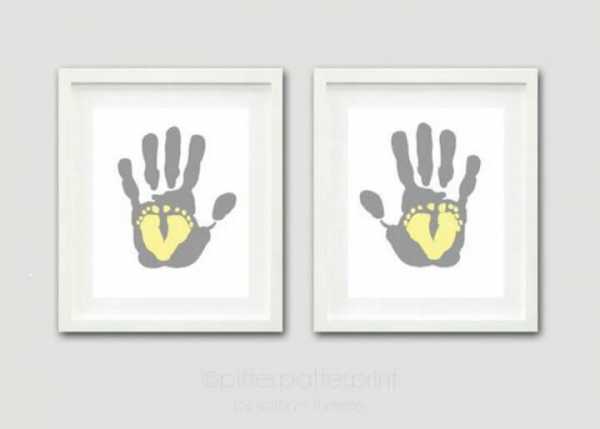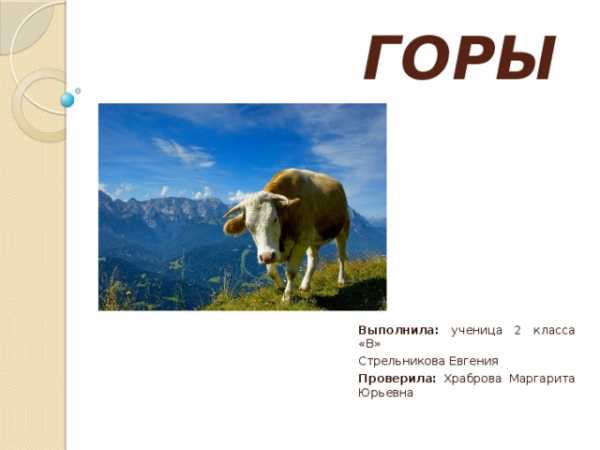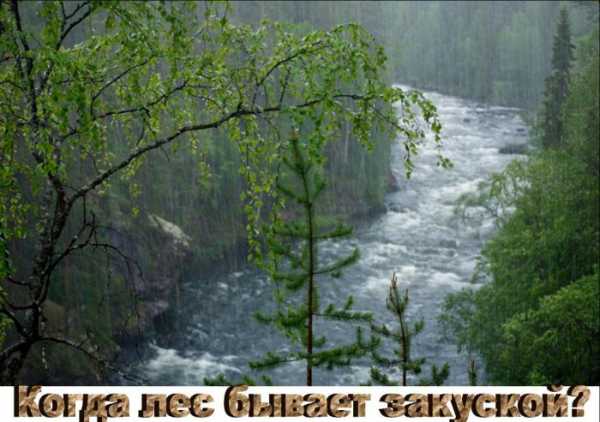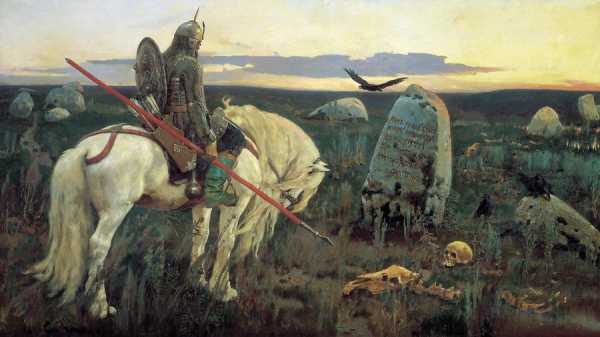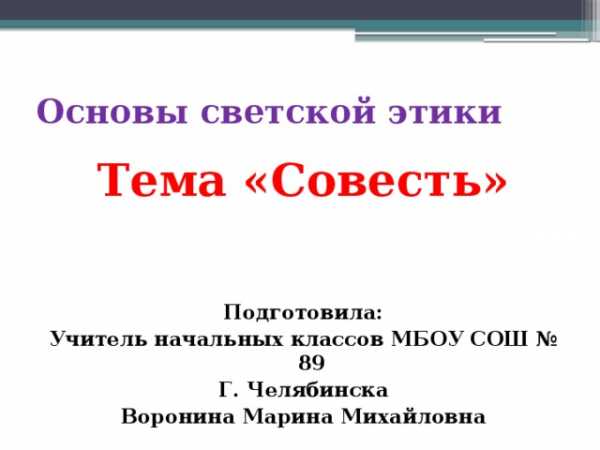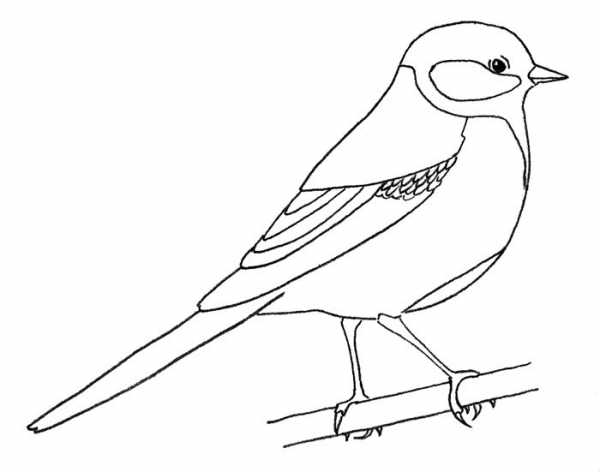План-конспект урока английского языка по теме Travelling (9 класс). Конспект урока travelling 9 класс
План-конспект урока "Travel" - Английский язык
План-конспект урока по английскому языку №10, 11
УМК: Solutions Intermediate
Класс: 8 Б, 8 A , 10 человек, 14 человек.
Тема: Travel
Тип учебного занятия: введение нового лексического материала
Цели урока: развивать навыки чтения с поиском заданной информации (поисковое чтение), способствовать развитию навыков говорения по теме «Travel», учить учащихся осмыслению извлеченной информации.
Задачи урока:
1. практические: тренировка ранее заученного языкового материала;
практика учащихся в устной речи.
2. общеобразовательные: расширение филологического кругозора учащихся;
расширение словарного запаса; расширение общего кругозора.
3. воспитательные: формирование навыков интеллектуального труда;
формирование интереса к предмету; воспитание трудолюбия и активности.
4. развивающие: развитие языковой догадки; развитие мышления, памяти, воображения
Лексические единицы: fanatic, crown jewels, generation, reminders scratched, dungeon, prison, Napoleonic wars, captured, load, item, amused, admission, towering glacier, depth.
Оснащение урока: учебник, доска, разгадочный материал
Ход урока:
Организационный момент, речевая разминка:
T: Good morning, boys and girls. I am glad to see you. How are you?
P: Good morning. We are glad to see you too. We are fine, thank you.
T: Today we continue to talk about our topic “Travel” and revise words on this topic, learn some new words. Today we read the text on p.83 and improve your reading and pronunciation skills. So, let’s begin our lesson. Open your books p.83. Look at the picture. What is there in the picture? Try to describe them.P.: There is a penguin in the first picture.
T.: What is it doing?
P.: It’s eating.
T.: What is there in the 2nd picture?
(Ответы учащихся)
Фонетическая разминка:
T: Well done! Look at the blackboard, please.
(На доске написаны слова с транскрипцией и переводом)
T: We are going to read the text so let’s read and translate the words you are going to meet while reading: Edinburgh Castle, fanatic, crown jewels, generation, reminders scratched, dungeon, prison, Napoleonic wars, captured, load, item, amused, admission, towering glacier, depth. Repeat after me.
(Чтение слов происходит по схеме: T – Class- P1- P2.)
T: I’d like you to find these words in the text, read the sentence and try to translate it.
(Дети ищут слова в тексте. Читают предложение и его перевод. Слова отбирались таким образом, что бы облегчить понимание текста)
T: Now I hope you are ready to read the text. Be attentive, somebody will translate.
(Дети читают текст по цепочке (Р1-Р2-Р3…) и переводят).
T.: We are going to work with the text, so let’s practice our word combinations. Match the English phrases with the Russian equivalents:
top tourist attraction – Камень СудебStone of Destiny – Наполеоновские ВойныNapoleonic wars – вход бесплатныйlarge collection – тропические ливниadmission is free – тающие ледникиtropical rainstorms – огромная коллекцияtowering glaciers – приманка для туристов.
(Учащиеся зачитывают свои ответы, ошибки исправляются вместе, всем классом)
T.: Ok, let’s do some tasks. Complete the sentences.
The castle is…not only in Edinburgh.
There are …on the walls of the dungeons.
The castle was a prison for the Frenchmen who were captures during …
Edinburgh Zoo is another…
The Zoo is noted for its…
Admission is…
You will be shaken by earthquakes, feel the cold of the ice ages and see…
Travel to the depth of oceans and fly high above…
(По окончании работы учащиеся в парах обмениваются листочками с заданиями, проводится взаимопроверка.)
T.: I’m going to check how attentive you were while reading. Let’s do ex.2, p.83. Say if the statements are true or false?Соглашаются либо исправляют высказывания.
T.: I guess, everybody understood the text. Answer my questions (видоизмененные упражнения из учебника):
What are the most popular attractions in Edinburgh?
In which of the places you can see monkeys/ jewels/ the distant past/ toy trains?
What is the Stone of Destiny?
How far is the Zoo from the city center?
When was The Museum of Childhood opened?
How much does it cost to get into the Museum of Childhood?
What is Dynamic Earth?
What can you see at Dynamic Earth?
Т.: Fine, you all gave the right information! Now let’s make a plan of the story and then all of you will retell it.
Дается время на подготовку. Учащиеся составляют план.
T.: Ok, let’s retell the story, P1., begin, please.
Учащиеся пересказывают текст по цепочке Р1-Р-Р3.
Т.:Good job! What places do you want to visit in Edinburgh? Why? Put down your answers to these questions and then you will all read them aloud.
(Учащиеся записывают ответы, затем читают их вслух)
T.: Good of you! Let’s write down your home task, you should retell the story using your plans. Thank you for your work. Good bye!
Раздаточный материал
top tourist attraction – Камень СудебStone of Destiny – Наполеоновские ВойныNapoleonic wars – вход бесплатныйlarge collection – тропические ливниadmission is free – тающие ледникиtropical rainstorms – огромная коллекцияtowering glaciers – приманка для туристов.
The castle is…not only in Edinburgh.
There are …on the walls of the dungeons.
The castle was a prison for the Frenchmen who were captures during …
Edinburgh Zoo is another…
The Zoo is noted for its…
Admission is…
You will be shaken by earthquakes, feel the cold of the ice ages and see…
Travel to the depth of oceans and fly high above…
What are the most popular attractions in Edinburgh?
In which of the places you can see monkeys/ jewels/ the distant past/ toy trains?
What is the Stone of Destiny?
How far is the Zoo from the city center?
When was The Museum of Childhood opened?
How much does it cost to get into the Museum of Childhood?
What is Dynamic Earth?
What can you see at Dynamic Earth?
multiurok.ru
Конспект урока по английскому языку "Почему люди путешествуют" в 9 классе
Тип урока: Формирование лексических и грамматических навыков
Задачи:
- повышать познавательный интерес к английскому языку, прививать интерес к путешествиям;
- развивать способности к логическому изложению, к догадке, развивать способность осуществлять продуктивные и репродуктивные речевые действия, развивать коммуникабельность;
- овладеть лексическим материалом и расширить кругозор по теме “Путешествие”;
- формировать лексические и грамматические навыки говорения, обучать умению строить высказывания по модели.
Оснащение урока:
дидактические карточки – задания, мультимедийная презентация
Ход урока
I. Организационный момент.
- Good morning, boys and girls. I`m glad to see you. It`s time to start our lesson. The topic of our discussion today is travelling. The multimedia presentation will help us. At the end of the lesson I want you to tell me why people travel.
II. Речевая разминка. (слайд 2)
- Look at here.You can see some proverbs about travelling. Read,and translate them, please.
And what do you think about travelling? Do you like to travel? Why do you travel? (5 мин.)
III. Этап формирования лексических навыков говорения.
А. (слайд 3)
Now let`s try to answer the question of the lesson. Look at the board and answer the question using the phrases on the slide.
Here you can see some sentences. They are not completed. You should complete them with phrases given in the table. (5мин.
People like to travel.
alone
with friends
with parents
with grandparents
Usually they travel.
on business
for pleasure
in search of adventures
to see the beauty of the world
When they travel they like to.
go shopping
meet new people
make new friends
go sightseeing
learn traditions of other countries
Because travelling is.
exciting
useful
enjoyable
good for health
But sometimes it can be.
disappointing
expensive
dangerous
tiring
And more over travelling.
broadens our outlook
gives us life experience
leaves impressions
helps us explore the world
allows us to understand other people better Now try to express your own opinion and say why people travel. All you need is to complete the sentences in your cards.(5 мин.)
1. Most people like to travel _______________________________
2. Usually they travel __________________________________________
3. When they travel they like to _____________________________
4. People like to travel because it is ___________________________
5. Of course sometimes travelling can be __________________________
6. And more over travelling _______________________________________________
I have some tasks for you.
С. (слайд 5)
There are some character – sketches of different people. They express their attitude about travelling. Match the sketches and the people.(7 мин)
1. a businessman
2. an experienced traveller
3. a professor of History
4. a couch potato
A. He likes to travel alone or with his students. They travel from curiousity. They like to see the beauty of the world and learn traditions of other countries. They think that travelling is fascinating and enjoyable. It broadens our mind and allows us to understand other people better.
C. He likes to travel alone or with his friends. Usually he travels for pleasure or in search of adventures. When he travels he likes to go sightseeing or explore unknown places. He believes that travelling is exciting and gives us life experience.
B. He doesn`t like to travel at all. He believes that it`s better to stay at home, because travelling is dangerous, troublesome and expensive.
D. Usually he travels alone on business. When he travels he likes to meet new people. He thinks that travelling is useful but sometimes it`s a bit tiring.
Ex.7 p.63. Read the words. (2 мин.)
IV. Работа с текстом упр.8 стр.63 и выполнение упр.9 стр.63 и упр.11 стр.64 (5 мин.)
Слайд 6
- Imagine you are going to travel. First you should pack your things. But what are you going to take? Start your answer with the phrase: “I`m going to take.”. Then tell what kind of weather you expect. Begin with the phrase: “I hope the weather will be…” Then tell what you are going to do during your trip. (7 мин.)
- I`m going to take ________ because I want to swim. I hope the weather will be ________.
- I`m going to take a swimming costume, a pair of sandals, sunglasses and a radio because I want to ________. I hope the weather will be ________.
- I`m going to take ________ and ________ because I want to play tennis. I hope the weather will not be ________.
- I`m going to take a penknife, jeans, socks, a warm sweater because I want to ________. I hope the weather will not be ________.
- I`m going to take books and a phrase book because I want to ________. I hope the weather will be ________.
- I`m going to take a dressing gown and a pair of pyjamas because I want to ________. I hope the weather will be ________.
- I`m going to take a dress because I want to ________. I hope the weather will be ________.
What to take:
a camera; a penknife; a radio; a swimming costume; a pair of sandals; sunglasses; a warm sweater; a tennis rocket; trainers; a football; a dressing gown; a pair of pyjamas; jeans; T – shirts; socks; a pair of walking boots; a dress; a clock; money; a phrase book; a passport
The weather:
Snowy; hot; foggy; windy; frosty; wet; cloudy; sunny; warm
What to do:
go sightseeing; visit museums; swim; sleep; sunbathe; play tennis;
see friends; go fishing; go to the theatre; camp; walk; learn English
Слайд 9 (рефлексия)
Дом. Задание- стр.68 упр.23 подготовить сообщение о путешественниках.1 мин.
V. Подведение итогов урока. Слайд 10- 1мин.
- It`s time to finish our lesson. I suppose you know why people travel and can answer this question. Thank you for your work. Have your break.
Просмотр содержимого документа «конспект урока по английскому языку "Почему люди путешествуют" в 9 классе »
Открытый урок по английскому языку в 9-м классе по теме: "Почему люди путешествуют?"Тип урока: Формирование лексических и грамматических навыков
Задачи:
повышать познавательный интерес к английскому языку, прививать интерес к путешествиям;
развивать способности к логическому изложению, к догадке, развивать способность осуществлять продуктивные и репродуктивные речевые действия, развивать коммуникабельность;
овладеть лексическим материалом и расширить кругозор по теме “Путешествие”;
формировать лексические и грамматические навыки говорения, обучать умению строить высказывания по модели.
Оснащение урока:
дидактические карточки – задания, мультимедийная презентация
Ход урока
I. Организационный момент.
- Good morning, boys and girls. I`m glad to see you. It`s time to start our lesson. The topic of our discussion today is travelling. The multimedia presentation will help us. At the end of the lesson I want you to tell me why people travel.
II. Речевая разминка. (слайд 2)
- Look at here.You can see some proverbs about travelling. Read,and translate them, please.
And what do you think about travelling? Do you like to travel? Why do you travel? (5 мин.)
III. Этап формирования лексических навыков говорения.
А. (слайд 3)
Now let`s try to answer the question of the lesson. Look at the board and answer the question using the phrases on the slide.
Here you can see some sentences. They are not completed. You should complete them with phrases given in the table. (5мин.)
|
People like to travel ... | alone with friends with parents with grandparents |
|
Usually they travel ... | for pleasure in search of adventures to see the beauty of the world |
|
When they travel they like to ... | go shopping meet new people make new friends go sightseeing learn traditions of other countries |
|
Because travelling is ... | exciting useful enjoyable good for health |
|
But sometimes it can be ... | disappointing expensive dangerous tiring |
|
And more over travelling ... | broadens our outlook gives us life experience leaves impressions helps us explore the world allows us to understand other people better |
Now try to express your own opinion and say why people travel. All you need is to complete the sentences in your cards.(5 мин.)
| 1. Most people like to travel _______________________________ 2. Usually they travel __________________________________________ 3. When they travel they like to _____________________________ 4. People like to travel because it is ___________________________ 5. Of course sometimes travelling can be __________________________ 6. And more over travelling _______________________________________________ |
I have some tasks for you.
С. (слайд 5)
There are some character – sketches of different people. They express their attitude about travelling. Match the sketches and the people.(7 мин)
| 1. a businessman | 2. an experienced traveller | 3. a professor of History | 4. a couch potato |
| A. He likes to travel alone or with his students. They travel from curiousity. They like to see the beauty of the world and learn traditions of other countries. They think that travelling is fascinating and enjoyable. It broadens our mind and allows us to understand other people better. | C. He likes to travel alone or with his friends. Usually he travels for pleasure or in search of adventures. When he travels he likes to go sightseeing or explore unknown places. He believes that travelling is exciting and gives us life experience. |
| B. He doesn`t like to travel at all. He believes that it`s better to stay at home, because travelling is dangerous, troublesome and expensive. | D. Usually he travels alone on business. When he travels he likes to meet new people. He thinks that travelling is useful but sometimes it`s a bit tiring. |
Ex.7 p.63. Read the words. (2 мин.)
IV. Работа с текстом упр.8 стр.63 и выполнение упр.9 стр.63 и упр.11 стр.64 (5 мин.)
Слайд 6
- Imagine you are going to travel. First you should pack your things. But what are you going to take? Start your answer with the phrase: “I`m going to take...”. Then tell what kind of weather you expect. Begin with the phrase: “I hope the weather will be…” Then tell what you are going to do during your trip. (7 мин.)
I`m going to take ________ because I want to swim. I hope the weather will be ________ .
I`m going to take a swimming costume, a pair of sandals, sunglasses and a radio because I want to ________ . I hope the weather will be ________ .
I`m going to take ________ and ________ because I want to play tennis. I hope the weather will not be ________ .
I`m going to take a penknife, jeans, socks, a warm sweater because I want to ________ . I hope the weather will not be ________ .
I`m going to take books and a phrase book because I want to ________ . I hope the weather will be ________ .
I`m going to take a dressing gown and a pair of pyjamas because I want to ________ . I hope the weather will be ________ .
I`m going to take a dress because I want to ________ . I hope the weather will be ________ .
What to take:
| a camera; a penknife; a radio; a swimming costume; a pair of sandals; sunglasses; a warm sweater; a tennis rocket; trainers; a football; a dressing gown; a pair of pyjamas; jeans; T – shirts; socks; a pair of walking boots; a dress; a clock; money; a phrase book; a passport |
The weather:
Snowy; hot; foggy; windy; frosty; wet; cloudy; sunny; warm
What to do:
go sightseeing; visit museums; swim; sleep; sunbathe; play tennis;
see friends; go fishing; go to the theatre; camp; walk; learn English
Слайд 9 (рефлексия)
Дом. Задание- стр.68 упр.23 подготовить сообщение о путешественниках.1 мин.
V. Подведение итогов урока. Слайд 10- 1мин.
- It`s time to finish our lesson. I suppose you know why people travel and can answer this question. Thank you for your work. Have your break.
kopilkaurokov.ru
План-конспект урока английского языка по теме Travelling (9 класс)
План-конспект урока английского языка по теме Travelling.
Тип урока: комбинированный с использованием информационно-образовательных технологий.
На уроке используется образовательная технология проектной работы.
Цель урока: развитие навыка работы с информацией через проектную деятельность.
Задачи урока
Образовательные: научить студентов самостоятельно добывать информацию из разных источников;
Обрабатывать информацию с помощью современных компьютерных технологий;
Совершенствовать коммуникативные умения;
Повторить новые лексические единицы по теме;
Развивающие:
Создавать условия для развития исследовательских умений учащихся;
Развивать лексико-грамматические навыки;
Совершенствовать диалогическую речь;
Воспитательные:
Развивать культуру взаимоотношений при работе в парах, группах, коллективе.
Воспитывать чувства патриотизма, ответственности, толерантности.
УМК Language to go - Students’ book: Gillie Cunningham, Sue Mohamed, издательство Longman
Оборудование: компьютер, проектор, раздаточный материал.
Этап урокаДеятельность учителя
Деятельность учеников
Организационный момент
Определение темы урока
Приветствует учащихся:
I am glad to see you. I am sure you are full of energy to participate in our work. Are you ready to start?
Look at the first slide. Do you guess what we are going to speak about today?
Right you are. We are going to discuss really interesting theme for you. It’s Travelling.
We’ll also enjoy some projects about travelling experience and museum visitation.
We are glad to see you too.
Yes, we are ready.
We see different kinds of transport. I think we are going to speak about traveling.
Актуализация знаний
Контроль и усвоение лексико-грамматических знаний
Применение полученных знаний в новой ситуации
Аудирование текста
But first let’s repeat new words.
Please, open your textbooks on page 38. Look at the things in the picture. What do you usually take when you travel? What don’t you usually take?
What else do you need when you travel?
(Lesson 18 Оn the move)
Let’s discuss verb noun combinations which will help you to talk about your travel preparations. Match the column’s to find the verbs and nouns that go together.
Before you listen to the telephone conversation between two girls, look through the questions in ex. 3 and then underline the correct answers.
Listen again. Tick the travel preparations Mel has completed on the list above.
(стр.39 учебника)
Студенты отвечают на вопросы учителя
Выполняют задания на соответствие в парах
Добывают информацию о путешествиях
Развитие навыков монологической речи
Данный вид учебной деятельности проводится с помощью презентации в Power Point.
Why do people travel?
Types of travelling (cruise expedition, flight, trips) Have you travelled for any of these reasons?
Tell the class. Use the vocabulary given on the screen.
Индивидуально составляют монологические высказывания
Презентация проектных работ
Now we are going to see your projects about travelling. Working in groups, you have viewed various websites and found interesting information. You have read some articles and learned new information.
First group is ready to present their
Project. The students from other groups will estimate their work.
Учитель внимательно слушает презентации, делает записи по использованию студентами лексических единиц, затем
предоставляет слово студентам, которые оценивали проектные работы, используя рубрику.
Студенты по группам представляют собственные проектные работы, посвященные путешествиям, используя полученные материалы в процессе речевого общения.
Домашнее задание
Your home assignment:
Revise the vocabulary of Travelling and be ready to talk about your travel preparations.
To improve your skills in writing social letters you should write the letter about travelling experience and send to my e-mail address.
Учитель дает инструктаж по домашнему заданию.
Вторая часть домашнего задания формулируется на основе обращения к образовательному электронно-коммуникативному ресурсу.
Студенты слушают инструктаж учителя, записывают домашнее задание и задают вопросы.
Рефлексия
Учитель благодарит учащихся за хорошую работу на уроке и спрашивает, что нового они сегодня узнали. Просит обучающихся проанализировать свое участие.
Отвечают на вопросы учителя, оценивают свою деятельность и деятельность однокурсников
infourok.ru






